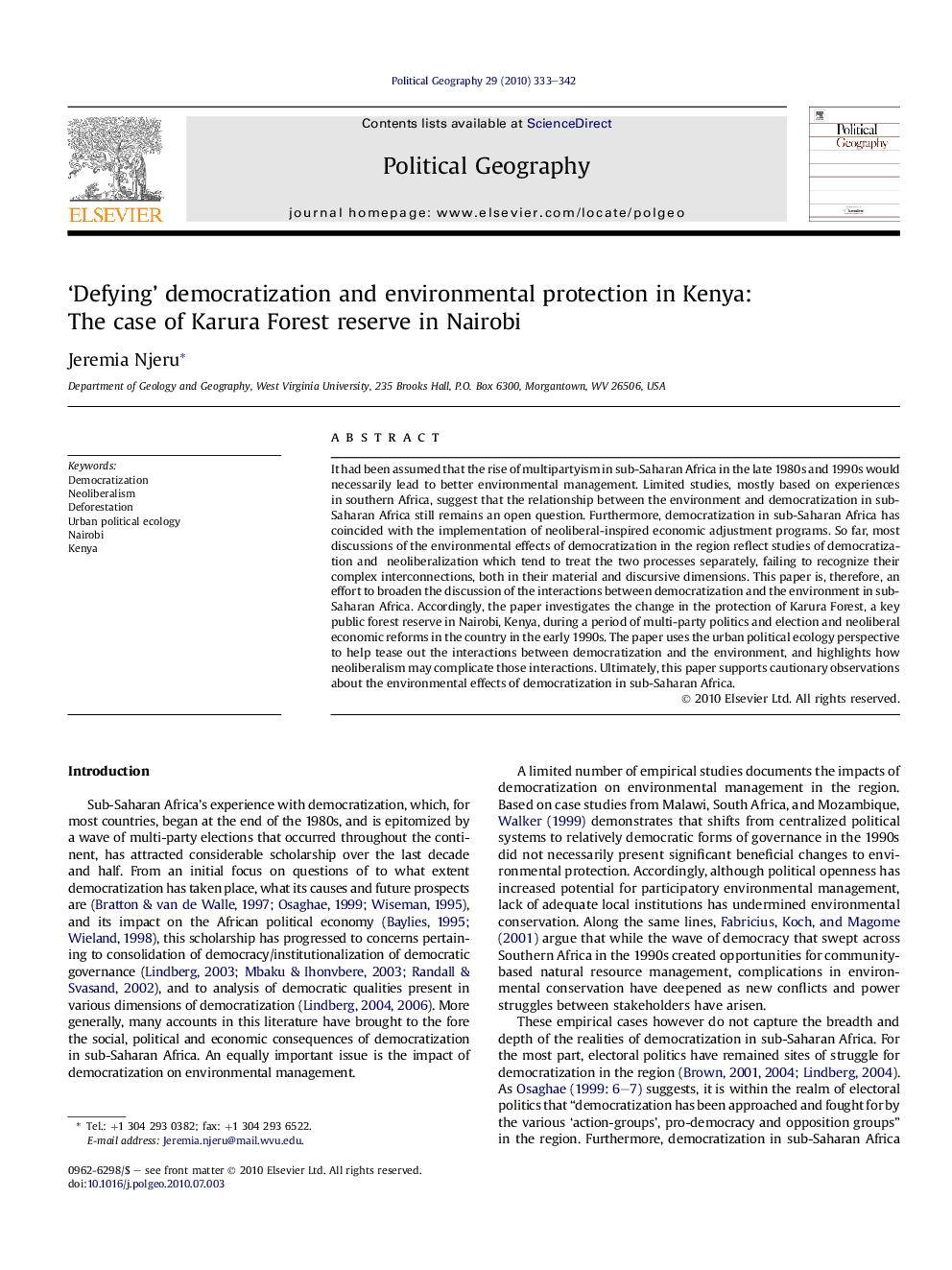| Article ID | Journal | Published Year | Pages | File Type |
|---|---|---|---|---|
| 1062277 | Political Geography | 2010 | 10 Pages |
It had been assumed that the rise of multipartyism in sub-Saharan Africa in the late 1980s and 1990s would necessarily lead to better environmental management. Limited studies, mostly based on experiences in southern Africa, suggest that the relationship between the environment and democratization in sub-Saharan Africa still remains an open question. Furthermore, democratization in sub-Saharan Africa has coincided with the implementation of neoliberal-inspired economic adjustment programs. So far, most discussions of the environmental effects of democratization in the region reflect studies of democratization and neoliberalization which tend to treat the two processes separately, failing to recognize their complex interconnections, both in their material and discursive dimensions. This paper is, therefore, an effort to broaden the discussion of the interactions between democratization and the environment in sub-Saharan Africa. Accordingly, the paper investigates the change in the protection of Karura Forest, a key public forest reserve in Nairobi, Kenya, during a period of multi-party politics and election and neoliberal economic reforms in the country in the early 1990s. The paper uses the urban political ecology perspective to help tease out the interactions between democratization and the environment, and highlights how neoliberalism may complicate those interactions. Ultimately, this paper supports cautionary observations about the environmental effects of democratization in sub-Saharan Africa.
